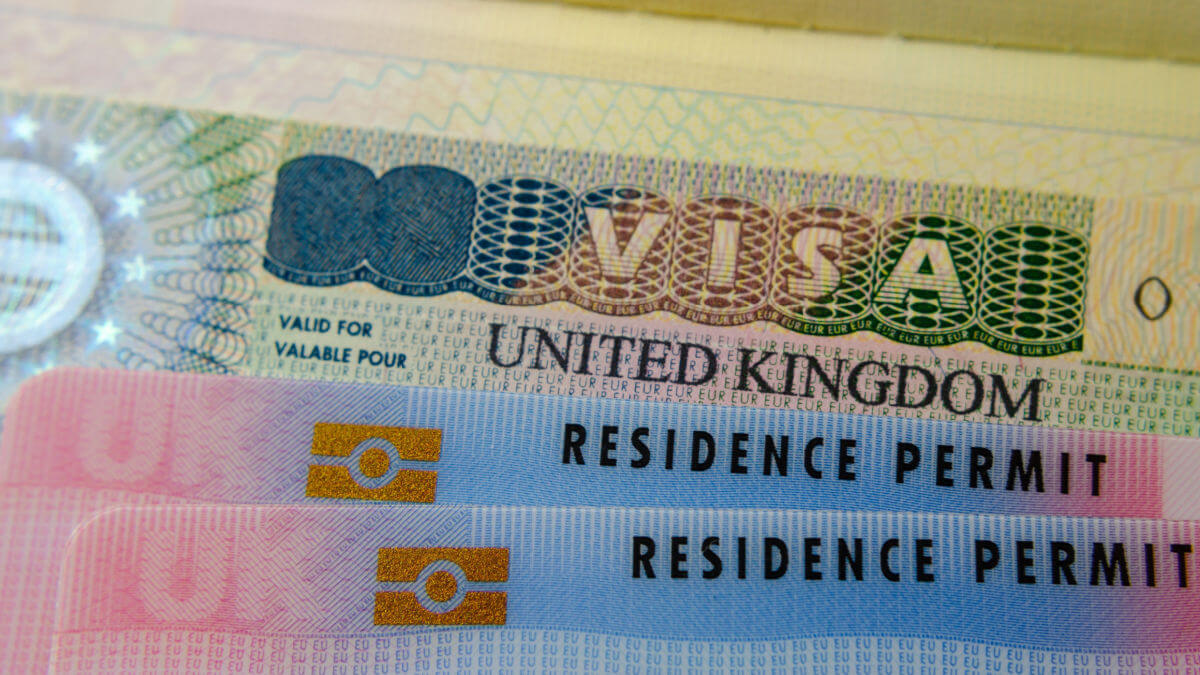How UK citizenship by investment works
Thinking of applying for a UK passport? Read our guide on the UK citizenship by investment, including the requirements, costs and benefits.

Goodness gracious! You’re moving to the United Kingdom. Lucky you - this green, pleasant land is a fine place to make a home. It’s not cheap though, so here are some tips to cut down on your costs when you make the move.

It’s tempting just to throw your hands in the air and get a professional to manage the whole of the moving process. But this isn’t just an expensive way to emigrate: it also means that you can lose control of what you do and don’t take.
Whether you like it or not, when you move abroad you have to think about what you need and what you don’t. If you don’t decide yourself, you’ll end up in your new British home surrounded by boxes filled with stuff you didn’t actually need in the first place. Make like the Brits, and ‘kill two birds with one stone’: while you’re deciding what you need to take, put it in a box.

OK, this isn’t good advice if you’re coming from across the Atlantic, but if you’re moving to the UK from Ireland or mainland Europe, you should think about getting the coach - combined with some sort of boat, obviously - before you buy a plane ticket. There are several coach services operating all across Europe.
This isn’t just cheaper and better for the environment: it can also be a great way to cut down on transportation fees. Understandably, planes are pretty strict about baggage restrictions, but coaches are often a bit more lenient. Go by coach, and you might find you have room for that second saucepan after all.

Don’t worry: there are gyms in the UK too. And there are credit cards, magazines, electricity companies… All those delightful monthly expenses that build up are present and will be in your new British home.
So don’t forget to cancel what you’ve got at the moment. If you’re renting a flat in London, the last thing you need is to discover you’re still paying for a gym membership in Milwaukee.

Trying to open a bank account while also finding somewhere to live is what the British like to call a ‘chicken and egg situation’ - it’s not clear which is meant to come first. And this means that at the start of your stay in the UK, you should make sure you have a backup way of accessing your money without having to make a costly international wire transfer every time you need to pay for anything. Stuffing your suitcase with pounds sterling? Not ideal.
A borderless multi-currency account with Wise might be the answer - ‘just what the doctor ordered’, even. You can easily keep your money in pounds, even without having a local account in the UK, and you can withdraw your funds at any time not just in pounds, but also in US dollars or euros. You get full local account details, so you can send and receive money at a stroke without having to use your foreign account. Consumer debit cards are on their way, too, coming in early 2018. It can save you a lot in transfer fees and bad exchange rates, and make the start of your trip a lot easier.

You can’t get far in London without seeing a sea of cars, but that doesn’t mean that you should own one yourself. While elsewhere in the UK a car is all but essential, in London the public transport system is good enough - and the roads are congested enough - that you should seriously consider going carless. With fuel prices sky high, insurance premiums particularly big in London and parking spots rarer than a fat-free pork pie, you’ll save a ton.

Now you don’t have a car, you might be wondering how you’re ever going to get further away than Watford. Here’s an idea: take the train. Britain is the home of the railway, after all, and some people still find something romantic about travelling through the country like this, whether to get somewhere for work or simply to enjoy the British countryside. But don’t get charged more than you have to: tickets are horribly expensive if you just turn up at the train station.
Get special ‘advance’ tickets by booking well before your journey - the earlier the better. You can do this through the National Rail website.

Renting is common in the UK and is a popular first step for newcomers to the country even if they’re planning to buy in the long term. That doesn’t mean it’s easy, though - and certainly not if you’re looking in London. Places tend to come and go incredibly fast and people often end up looking around until just before their move-in date: it turns into a battle of nerves. Stay strong, and if you see a good deal, act fast.
As you’d expect, the further out from central London you get, the cheaper the prices. But take a look at a tube map too: if you’re in an outer ‘zone’ - say, Zone 3 or Zone 4 - then it will cost you quite a lot more to travel around the city each month. So that place at the end of the Northern Line might not really be the bargain it looks.

Electricity and gas bills can sometimes end up ‘costing an arm and a leg’, as they say, and if you’re moving into a rented flat (that’s British for ‘apartment’) then you'll initially be stuck with whichever companies the previous tenants used. Ask your landlord, but if you’re able to switch provider you can potentially end up saving a lot. Also check what sort of tariff you’re on - it’s usually cheaper if you set up a direct debit. That’s the case for water bills too, even though you can’t usually choose your water supplier.
As for internet access: tenants usually have to sort this out for themselves and it can take a while to get switched on. So this is something to research well before you leave.

Oh, don’t look at us like that, Mrs Fluffypants: you can come to the UK too! So long as all the necessary steps have been taken.
That means microchipping and vaccinations if you have a cat, dog or ferret. And you’ll also need to get hold of a pet passport, which sounds more whimsical than it actually is - it’s a legally important document. There’s also some paperwork, of course. The UK government website has full details on bringing your pet to the UK. Take a look well before you set off.
Good luck with your move to the UK. Follow this advice and you should have enough cash left over for all the cups of tea you can drink.
*Please see terms of use and product availability for your region or visit Wise fees and pricing for the most up to date pricing and fee information.
This publication is provided for general information purposes and does not constitute legal, tax or other professional advice from Wise Payments Limited or its subsidiaries and its affiliates, and it is not intended as a substitute for obtaining advice from a financial advisor or any other professional.
We make no representations, warranties or guarantees, whether expressed or implied, that the content in the publication is accurate, complete or up to date.

Thinking of applying for a UK passport? Read our guide on the UK citizenship by investment, including the requirements, costs and benefits.

Looking for private medical insurance? Read our guide on private health insurance for foreigners in the UK.

When dreaming about higher education, many students have the United Kingdom in mind due to its prestigious universities and world-class academic programs....

Getting into a university in the United Kingdom has long been an aspiration for international students due to their world-class, top-notch excellence. There’s...

Whether you’re commuting to work, planning a weekend getaway, or embarking on a grand adventure, Trainline offers a convenient and hassle-free way to book...

A guide to the residence permit in the UK, including what it is, who is eligible, how to apply and how much it costs.